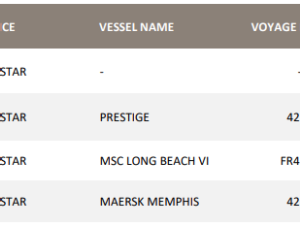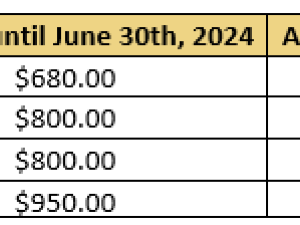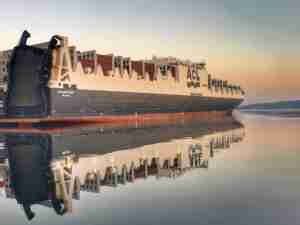Lithuanian stevedoring firm Klaipedos Smelte said it would start providing container transshipment services for privately owned, Swiss based MSC at Klaipeda and expected volumes to grow sharply.
Klaipeda, the northernmost ice-free port on the eastern coast of the Baltic Sea, overtook Tallinn by a fraction to become the second largest port after Saint Petersburg last year.
"We have signed a 10-year contract with MSC to use our capacities to establish a container transshipment hub for MSC in the Baltic Sea basin," Chief Executive Rimantas Juska told Reuters. "We plan to start operating as a hub already in the second half of 2012,"
Juska said Klaipedos Smelte planned to boost its volumes from 160,000 twenty-foot equivalent units (TEU) last year to a million TEUs in 2023.
The Lithuanian company is 96 percent owned by Terminal Investment Limited (TIL), a company that works closely with MSC, itself second only to Denmark's Maersk Line in the sector.
Klaipeda port saw its throughput rise to 36.6 million tonnes in 2011 from 31.3 million tonnes a year ago helped by growth in volumes of fertilisers and containers.
Tallinn slipped to 36.5 million tons.
Eugenijus Gentvilas, the head of Klaipeda port, said other Baltic ports were hit by competition from Russian Ust-Luga, but Klaipeda has not been affected.
"So far we've not noticed that (Vladimir) Putin's vision to divert all Russian cargo from the Baltic ports have become a reality...," he told Reuters in an interview last week.
Russian cargoes totaled about 4 million tonnes at Klaipeda last year, with export of metals restarted after a decade, Gentvilas added.
Gentvilas said the port planned to invest up to 250 million litas ($94.99 million) in infrastructure, including capital dredging of the port fairways up to 14.5 metres deep by 2013.
Ship containers are especially used to transport consumer goods including electronic items and toys to the West.
A slump in the retail sector due to economic turmoil has hit the ship container market's major route between Asia to Europe forcing players to restructure and create joint venture deals at a time when the sector is struggling with a glut of ships.
"The container sector comprises big companies with a lot of financial leverage with a clear problem of oversupply," Marco Vetulli, senior credit officer with Moody's Investor Service told Reuters.
"The competitive environment of these companies is very difficult. We saw last year a price war which had a negative effect for all the market players." (Reuters)









